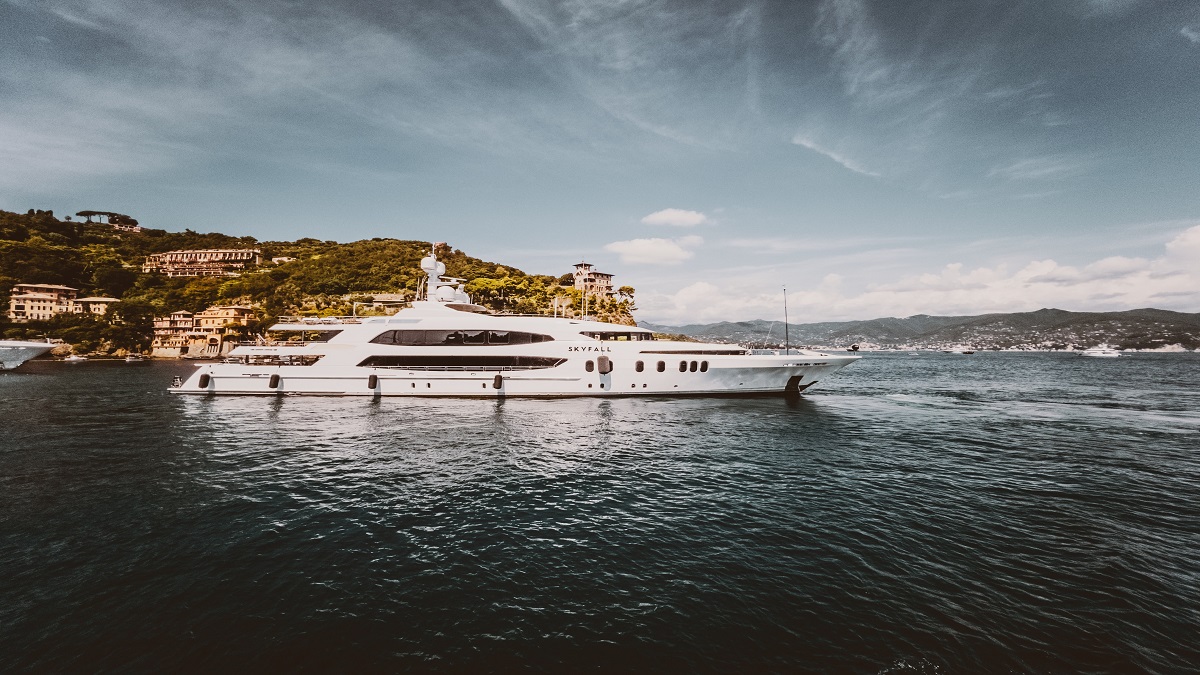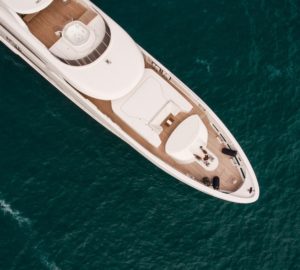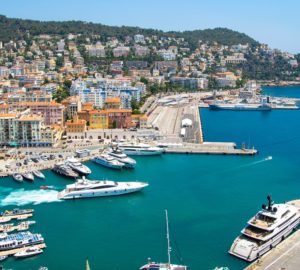Boat ownership is often a romanticized concept. Every boat show season, thousands of would-be owners walk on boats and leave with visions of cocktails in the cockpit, family vacations, or landing monster fish with their buddies. People like boats, and like owning boats. But is buying a boat really a good idea?
And that answer…depends. If you are asking financially, a boat is almost always a poor investment. But if you’re asking for yourself, and how you want to spend your free time and your recreation dollars, look more closely at the costs versus what being on the water is worth to you.
Buying a yacht is a bad financial idea
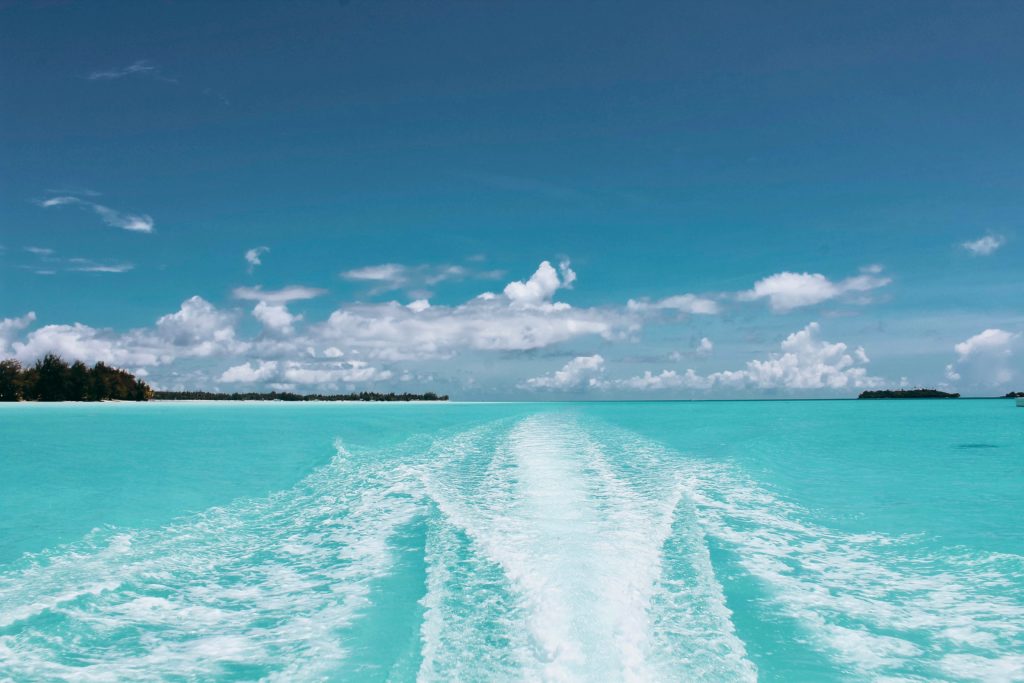
From a financial perspective, you will almost always lose money on a boat. You should never approach buying a boat as a money-making or investment growth opportunity. Even on a business purchase, a break-even is difficult, and operating expenses are high.
You will not make or save money with your boat
Unlike vacation homes and other real estate, new boat values drop substantially as soon as you put them in the water. And using them to make money back is fraught with risk, regulation, and extra expenses.
There are only a few ways to make money with a boat, and they almost all involve chartering, whether you’re renting the boat out or taking charter parties out yourself. Buying a charter boat in a fleet may provide a break-even experience, but there are downsides we’ll talk to below. Running a fishing charter is a full-time job.
Used boats come with risks
Most new boats aren’t perfect. But you have a warranty if hidden flaws show up. Used boats may have hidden defects that a survey might miss. And if you find a big problem in a used boat after you buy it, you own the boat and the problem.
Used boats on can be a great way to get into a boat for less money. But come in with your eyes open and do a professional survey. A “bargain” boat is no bargain if you suddenly need a new engine or have to replace large sections of delaminating deck.
All boats are depreciating assets
Boats rarely achieve the “antique” status that classic cars can. While boats last a long time, being old and in good shape rarely means a boat is worth much more than a similarly old boat that is in less pristine condition.
Once a boat gets past a certain age, its value stops dropping quickly, but it’s already lost most of the original value.
Banks are reluctant to lend money for yachts
Because boats are mobile, capable of sinking, and constantly depreciate, banks see them as risky assets. This doesn’t mean you can’t get a loan for a new or a near new boat. Banks express their reluctance to lend with higher interest rates, adding to the cost.
And older, smaller boats may be impossible to borrow on, or if they do, rates may be quite high.
The maintenance is higher than you think
It’s a common mistake among prospective boat owners that the purchase price is the only large cost. Dealers help this when they put monthly payments on boats instead of purchase prices to make the boat feel cheaper than it is.
The ownership costs of a yacht add up to a significant percentage of the purchase price. Expect about 10% of the purchase price annually in maintenance expenses, and more for older boats in the first year.
Significant ongoing and repeating expenses for boats include:
- Seasonal dockage or mooring. This is priced by the foot, so it costs the same no matter the value of the boat.
- Fuel and/or sails. Sails last a long time, but not forever, and they aren’t cheap.
- Off season storage and winterizing. In colder climates, boats must be prepared for freezing temperatures and stored.
- Repairs. This is more sporadic, but is ongoing. Something is always breaking.
- Maintenance. Boats need to be regularly cleaned, waxed and polished. It takes time and some money.,
- Insurance. Mandatory if you have a boat loan or stay in a marina, and you should have a liability policy.
Read also: YACHT INSURANCE: THE DEFINITIVE OWNER’S GUIDE
Buying a charter boat in a fleet is rarely profitable
In the charter fleet model, you buy a boat somewhere far away and sunny, and a charter company manages it for you. They do all the upkeep and maintenance and rent it out. You have several weeks every year to come use the boat yourself.
They often sell this as a moneymaker for the buyer. The income from the charters, after expenses, is more than enough to cover the boat loan, and the charter company covers most other expenses while the boat is in their possession. Then any leftover money goes back in your pocket!
The reality is it’s usually a break-even. The model assumes several stars must align to make a profit.
First, the charter company must keep the boat fully booked. This can be a challenge with weather, storms, pandemics, and the economy. A week or two of downtime is thousands of dollars gone, and may be the only profit margin you have. Second, nothing awful must happen to the boat. Finally, and most important, chartering puts a lot of wear-and-tear on a boat, and the value of the boat will drop considerably from what you paid for it when it comes out of the charter fleet.
When is buying a boat a good idea?

All of this makes boat ownership sound terrible. But millions of people own boats, and with good reason.
You are a passionate sailor and want to have your own vessel
If you love the water and boating, then the costs and pains are worth it to you. Everyone has different passions, and when the boating bug bites hard, the cost is worth it.
You are aware of the maintenance and costs
Happy boat owners know what they’re getting into, and don’t get overwhelmed by what it takes to keep a boat operational and beautiful. Your first boat can catch you by surprise, but if your passion for the water pushes you and you understand the work, you will take it on for your boat.
You have can afford to own a boat
Having enough money for the boat you buy is one of the most important facets of happy boat ownership. Whether you’re buying a thirty-year-old sailboat for a few thousand dollars or a spending millions on a new power cruiser, knowing your budget and having the funds to pay for what you need as crucial.
The most miserable boat owner is one who pays to OWN a boat, but can not afford to USE it.
Buying a little less boat is often a smart move for long-term boating happiness, so buy a boat you can afford to own, maintain, and operate.
Alternatives to buying a yacht
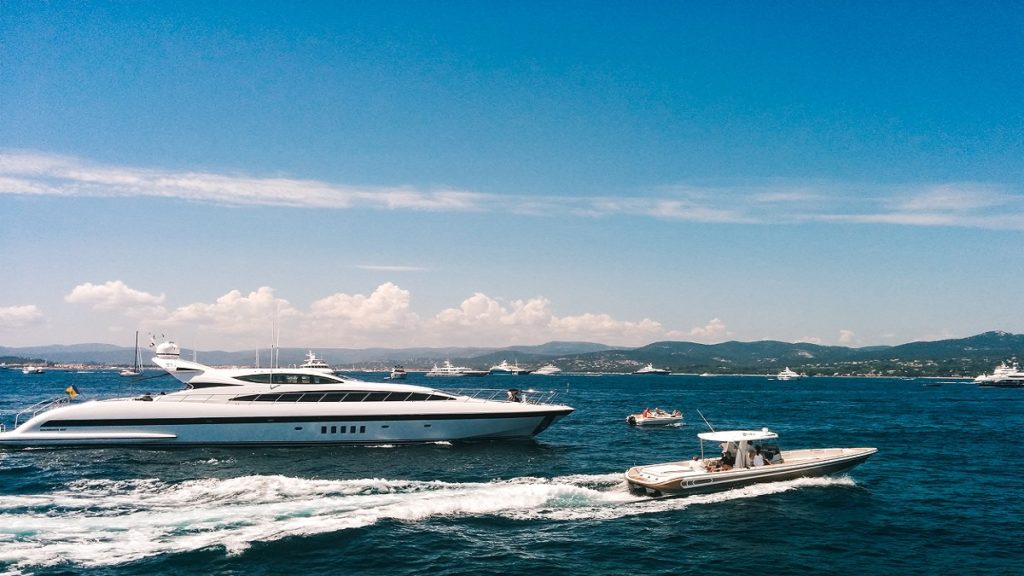
Buying your own boat isn’t the only option for getting on the water. There are a few less committed was to get your yachting fix.
Chartering a yacht (or “sailing without the hassles”)
Chartering a boat has many advantages over owning a boat. For the annual operating expenses of a good-sized boat, you can charter a boat at least twice a year and take your boating vacations in some of the most beautiful cruising grounds in the world.
The beauty of chartering is you get all the pleasures of skippering your own boat, but you don’t have to worry about anything but making sure you’ve packed and provisioned for the trip. You show up and the boat is ready for you to use. At the end of your vacation, you hand off the dock lines and the keys and you never spend another cent or another worry on boat ownership.
And unlike someone with a geographically locked boat, you can take each sailing vacation in a different exotic spot on a new and different vessel.
Shared or Fractional ownership
Fractional ownership is another way to get the joys of boat ownership for lower costs, while maybe losing some headaches and handling.
Boat partnerships with people you know are common, and you can work out shares for expenses, boat work, and usage. But fractional ownership programs may put you in a partial ownership with several people, and the ownership program will take care of all the maintenance, preparation, and fair scheduling for the boat.
For fractional boating, there is a buy-in to get the boat, and a monthly cost to cover the boat payments, insurance, and other expenses. The management company is also making a little on this transaction, and you are paying others to do all the work. So buying a 1/4 share in a fractional boat will cost you more than 25% of buying your own boat. But it also costs a LOT less than buying a whole boat.
Read also: Fractionnal yacht ownership : everythings you need to know
Conclusion: Is it bad for YOU?
Only you can know your tolerance for financial risk versus the reward of boating to you. If you are so passionate you want to spend every spare weekend and minute on the water, they boat ownership may be a good idea despite the costs. But if you’re fine with being on the water more intermittently and want to reduce your costs, they are better options.
Read also: CAN OWNING A YACHT TO CHARTER (REALLY) BE PROFITABLE?

